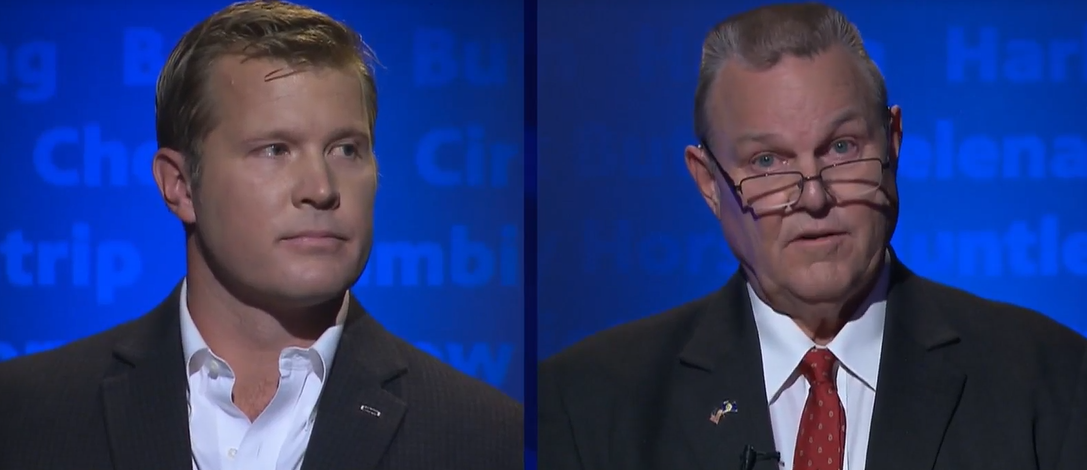
- Details
- By Levi Rickert
Native Vote 2024. Third-term U.S. Sen. Jon Tester (D-MT) candidate confronted his GOP opponent Tim Sheehy about his disparaging and racist comments caught on tape about Native Americans during a debate on Monday night.
The confrontation came about 50 minutes into the one-hour debate hosted by Montana PBS as the two candidates were discussing how to improve health care for Native Americans in the state. Tester confronted Sheehy about his statements in November 2023, when he said members of the Crow Nation were “drunk at 8:00 a.m.” according to audio recordings first reported by the Char-Koosta News.
In the clip, which was recorded at a fundraiser on Nov. 6, 2023, Sheehy brags about roping and branding with members of the Crow Nation. He says “it’s a great way to bond with the Indians while they’re drunk at 8:00 a.m.”
Audio - Tim Sheehy - Shelby Event
“If you really feel this way about Native Americans, you ought to apologize for the statements you made about them,” Tester said. “It’s on tape, once again, and you didn’t think anybody was listening, But believe people when they say stuff in a back room.”
“You’re a big guy; just apologize,” Tester said.
Without apologizing, Sheehy cited his military background and called what he said as merely insensitive jokes.
“The reality is, yeah, [it was] insensitive. I come from the military, as many of our tribal members do. We make insensitive jokes and probably off-color sometimes,” he said.
Sheehy quickly deflected to the immigration issue.
“Will you apologize for opening the border?” Sheehy fired back.
Sheehy's comments have stirred the ire of Native Americans in the state and across the country.
Earlier in the day, two Native Americans interrupted a rally Sheehy held with Turning Point USA’s Charlie Kirk.
“You are a racist! You are a racist!” one of the demonstrators chanted at Sheehy before he was forcibly removed from the University of Montana theater where the rally took place hours before the debate.
Tester is a member of the U.S. Senate Committee on Indian Affairs.
More Stories Like This
Native News Weekly (August 25, 2024): D.C. BriefsScope Narrowed, Report Withheld: Questions Mount Over Michigan Boarding School Study
Zuni Youth Enrichment Project Announces Family Engagement Night and Spring Break Youth Programming
Next on Native Bidaské: Leonard Peltier Reflects on His First Year After Prison
Deb Haaland Rolls Out Affordability Agenda in Albuquerque
Help us defend tribal sovereignty.
At Native News Online, our mission is rooted in telling the stories that strengthen sovereignty and uplift Indigenous voices — not just at year’s end, but every single day.
Because of your generosity last year, we were able to keep our reporters on the ground in tribal communities, at national gatherings and in the halls of Congress — covering the issues that matter most to Indian Country: sovereignty, culture, education, health and economic opportunity.
That support sustained us through a tough year in 2025. Now, as we look to the year ahead, we need your help right now to ensure warrior journalism remains strong — reporting that defends tribal sovereignty, amplifies Native truth, and holds power accountable.
 The stakes couldn't be higher. Your support keeps Native voices heard, Native stories told and Native sovereignty defended.
The stakes couldn't be higher. Your support keeps Native voices heard, Native stories told and Native sovereignty defended.
Stand with Warrior Journalism today.
Levi Rickert (Potawatomi), Editor & Publisher


